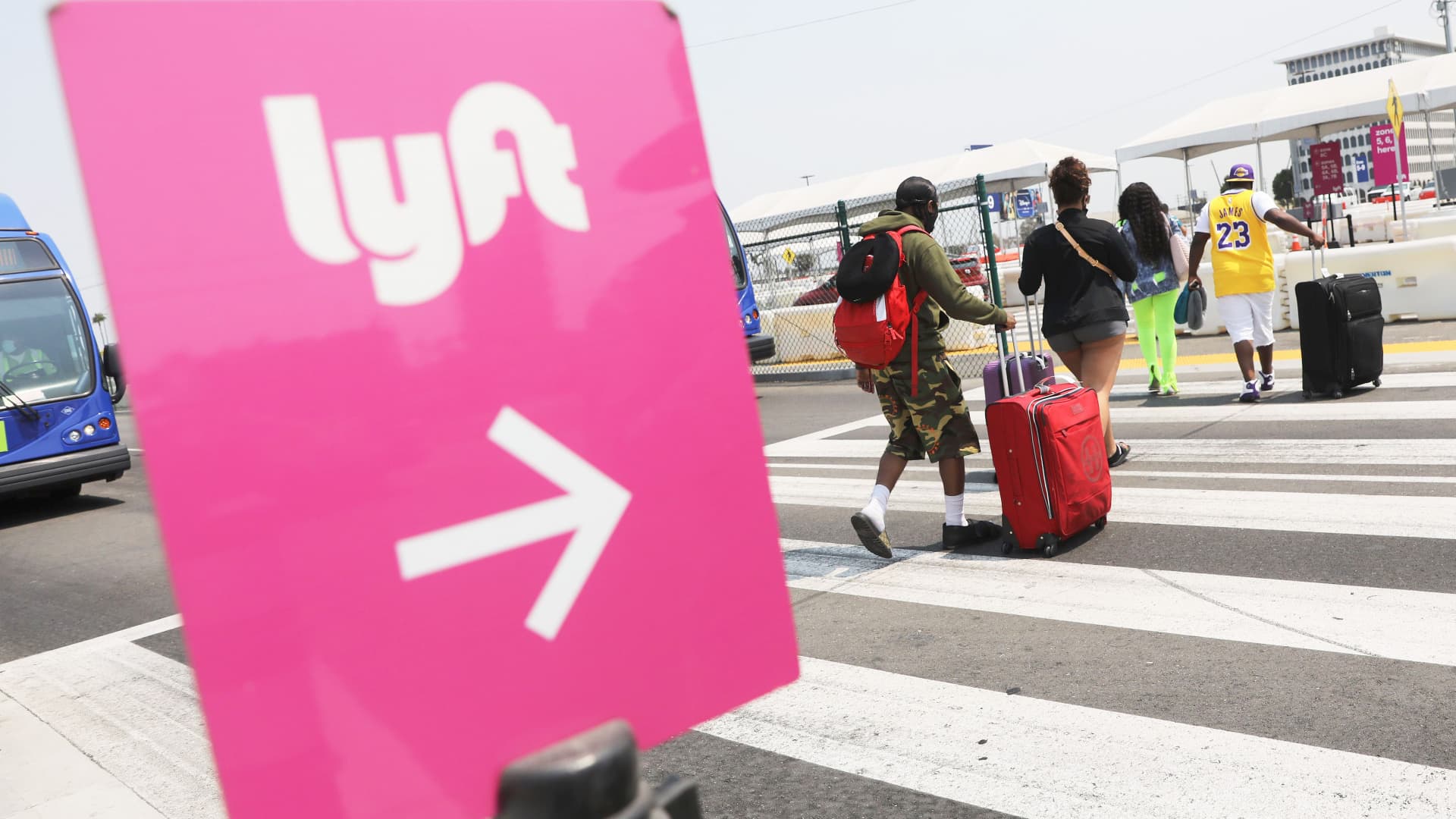
Wall Street analysts say Lyft has no excuses for its poor guidance. Lyft shares fell more than 30% during Friday premarket trading as traders weighed a weaker-than-expected forecast from the ridesharing company in its most recent earnings report. The firm otherwise reported a revenue beat. The ridesharing company said it expects to make about $975 million in revenue in the fiscal first quarter of 2023, or lower than the $1.09 billion consensus estimate from analysts, according to StreetAccount. Lyft also forecasted an adjusted EBITDA between $5 million and $15 million in the first quarter. “Our Q1 guidance is the result of seasonality and lower prices, including less Prime Time,” CFO Elaine Paul said in a statement. LYFT 1D mountain Lyft shares tumble For market observers on Wall Street, that was hardly a good enough explanation. They pointed out that Uber might be better positioned to take advantage of a broader recovery in ridesharing, even as Lyft appears to be falling behind. As of Thursday’s close, Lyft shares jumped more than 47%, following a 74% drop in 2022. Meanwhile, Uber shares bounced 45%, after falling 41% last year. Uber shares fell more than 3% in Friday premarket trading. JPMorgan’s Doug Anmuth downgraded shares to neutral from overweight, and roughly halved his price target, saying Lyft is failing to catch up with the recovery. His $15 price target, cut down from $29, suggests shares should fall another 7% from Thursday’s closing price. “Our positive thesis on Lyft had been based on post-pandemic recovery combined with an accelerated shift to profit through cost rationalization. However, rideshare is now approaching full recovery in the US, but Lyft is not,” Anmuth wrote in a Friday note. “The market is normalizing w/increased supply of drivers–after a couple tight years–and prices are moderating lower. But these dynamics, combined with elevated insurance costs, seem to have caught Lyft off guard and are negatively impacting the business,” Anmuth added. Truist’s Youssef Squali downgraded the stock to hold from buy on lower growth and margins outlook, saying Lyft is falling behind Uber in the marketplace. Additionally, Squali cut his price target to $14 from $40. That means shares can drop another 13% from Thursday’s close. “Competitive pressures have intensified with Uber in Jan. with Lyft lowering its base pricing to better compete, but pressuring revenue growth. Lower profitability in 1Q23 is driven by lower revenue and higher insurance costs, which seems to be more of a structural issue for Lyft than for Uber (Buy),” Truist’s Squali wrote. “Importantly, mgt walked back its guidance for $1B in Adj. EBITDA/ $700M FCF for FY24, adding more uncertainty. Uber looks to be pulling away from Lyft competitively, cementing its place as the superior model, in our view,” Squali added. Meanwhile, KeyBanc Capital Markets’ Justin Patterson downgraded Lyft to sector weight from overweight following its earnings, as it casts “uncertainty on our view of improving execution and a profit inflection.” While the analyst did not have a price target available, his previous target in January was $24 for the stock. “With ~2/3 of the q/q decline in revenue coming from less Prime Time activity and reducing prices to match its competitor, we have more questions on whether revenue can achieve mid-to-high teens growth in 2023E,” Patterson wrote. Lastly, Loop Capital’s Rob Sanderson downgraded Lyft to hold from buy, and dropped the price target to $10 from $17. The new price target implies a 38% tumble from where shares closed Thursday. He said the disappointing earnings come amid a “fundamental improvement” in market conditions. “The mea culpa by management seems to be that the business was over-earning on inflated prices amidst supply-constraints (surge pricing), an issue they had downplayed to then apparently be taken by surprise,” Sanderson wrote. —CNBC’s Michael Bloom contributed to this report.

